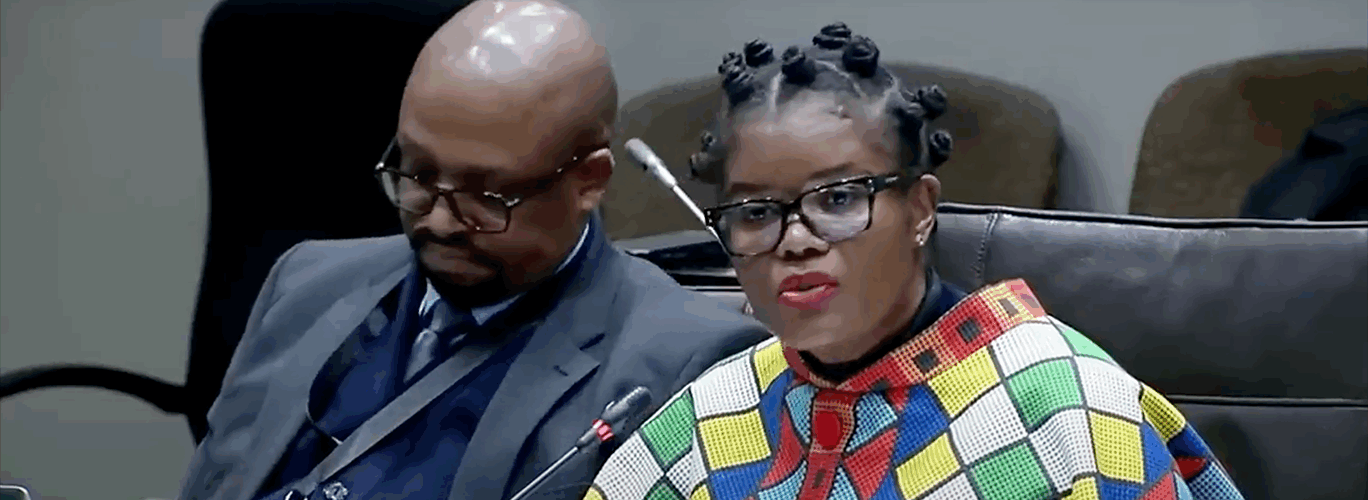EVASIVE: Ramaphosa must discipline errant minister acting unconstitutionally
By Ido lekota
Africa’s biggest bane in its ongoing struggle against neo-colonialism and neo-imperialism is widely recognised as a lack of effective leadership – a leadership that regularly thrashes constitutionality at every turn, even as it pronounces it as the supreme law of the land.
The tenor of this article is to show these contradictions, even committed by the ANC – an organisation that has over the years lionised the Constitution, but conveniently undermines it at the same time.
In this regard, research and expert analyses highlight some key points:
• Weak, corrupt, or entrenched leadership often resulting in mismanagement of resources, poor governance, and lack of transparency – exacerbating economic inequality, social unrest and underdevelopment.
• The need for homegrown ethical and visionary leadership accountable to its people and capable of harnessing the continent’s vast resources for sustainable development and self-determination.
However, higher education Minister Nobuhle Nkabane’s continued unethical and obstreperous behaviour do nothing to address the above-mentioned concerns. The minister was recently reprimanded by President Cyril Ramaphosa following her conduct during a meeting of the parliamentary portfolio committee on higher education.
But why is the ANC study group on higher education willing to applaud the minister for reopening nomination for the positions of Sector Higher Education and Training Authorities (SETA) chairpersons despite the controversy around the saga?
In a statement this week, the group said the minister’s actions reflected “political maturity and a commitment to restore public trust,” also welcoming Nkabane’s decision to disclose names of the “independent” panel to oversee the selection process”. But the minister did not voluntarily withdraw the appointments – “thereby showing political maturity and a commitment to restoring public trust” as claimed by the group.
The contrary is true. She was forced to backtrack following a huge public outcry. Nkabane caused a stir by the appointment of ANC-linked figures as chairs of SETAs, including Buyambo Mantashe, who is the son of Minister Gwede Mantashe, the ANC national chairperson, and other “ANC allies” – an action seen by others as bordering on nepotism. If anything, the minister’s behaviour, during her appearance before the portfolio committee on higher education – which happened after the withdrawal of the appointments – exposed her political immaturity.
What exposes the study group’s folly is the fact that in her behaviour towards Members of Parliament who wanted to hold her accountable, Nkabane showed them nothing but disrespect – thereby exposing how as part of the ANC leadership she sees herself as being above the law, and there entitled to act as she pleases.
Congratulating Nkabane for eventually releasing the names of the “independent” panel – which included officials from her own department, the study group exposed its commitment to supporting ANC leaders over their accountability to the rule of law and the Constitution as public representatives.
ANC MPs are expected to hold an executive such as Nkabane accountable, but inexplicably they chose to renege on what the Constitution demands of them.
More concerning, though, is fact that the study group’s message is contrary to the parliament’s stern and decisive response to Nkabane’s unprofessional, petulant, and self-serving behaviour – and that portfolio committee is adamant actions ought to be taken against her for misleading its members in the SETA board selection process.
On another matter, the DA has referred her to the ethics committee for lying to parliament – a criminal offense punishable by a fine or imprisonment or both for a period not exceeding two years.
The party said Nkabane misled the portfolio committee by stating that all members of the SETA board chairperson selection and evaluation panel were independent.
DA committee member Karabo Khakhau said the five-member panel had people who were former provincial ANC Youth League leaders, as well as a current adviser to the minister, Nelisiwe Semane, who is a chief of staff in the Nkabane’s office.
This behaviour certainly does nothing to show the study group’s commitment “to strong oversight and good governance in the management of public institutions”, on the contrary exemplifies what is often described as entrenched culture of patronage within the ANC – where loyalty supersedes competence, accountability and democratic norms.
Her behaviour was marked by her dismissive responses to questions raised by the MPs, as was her casual gum-chewing tendency while addressing her colleagues, reflected the disdain with which she treated her colleagues.
More seriously, her refusal to answer critical questions posed to her by her colleagues was reflective of a minister with no appreciation for her parliamentary responsibility and public accountability.
When pressed to provide an explanation for the appointment, Nkabane deflected, and in a contemptuous manner, told the committee that if it needed clarification, it should “consult Google”.
Nkabane has since reversed the appointments following a public outcry denouncing her behaviour. Ramaphosa has publicly reprimanded her, demanding she prepares a detailed report explaining her actions. According to media reports, the minister had previously shrugged off legal opinion advising her to publicly name the composition of the panel involved in the now reversed appointment decision, arguing that such a disclosure would “invite unwarranted public vitriol against panel members”.
Her behaviour in the whole saga lacks sensitivity to good ethics and accountability to the public she ought to serve with a measure of humility.
In this context, she was dismissive of legitimate public concerns. The country’s Constitution demands of officials in public office to be accountable and transparent in exercising administrative action.
Her action must therefore call for a more drastic sanction by Ramaphosa. Public officials, including cabinet ministers, are not above the law.
The maintenance and respect of the rule of law demands of cabinet ministers to never act ultra vires.
Any inaction by Ramaphosa will do very little to dispel the already entrenched public perception that Nkabane’s behaviour is more than a breach of social etiquette, but more exemplifies the entrenched culture of patronage within the ANC – where loyalty supersedes competence, accountability, and democratic norms.
Ramaphosa has to act decisively – and with urgency – to demonstrate, and to dispel the notion that Nkabane’s behaviour does not reflect a broader ANC culture of impunity. He must show, by action, his government will not be tolerant of unethical behaviour.
He must show by acting authoritatively that where executive members view parliament as an inconvenience rather than a constitutional imperative, he will not hesitate to take appropriate disciplinary action against errant ministers.
• Ido Lekota is a political analyst


































